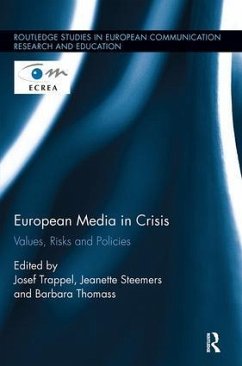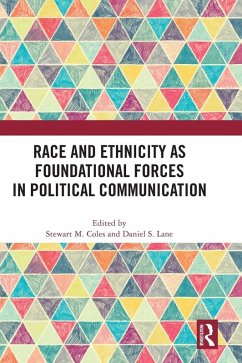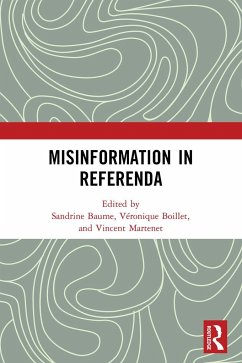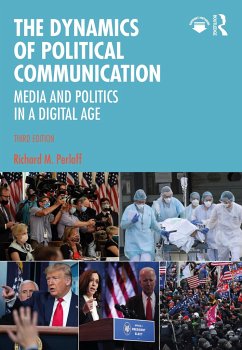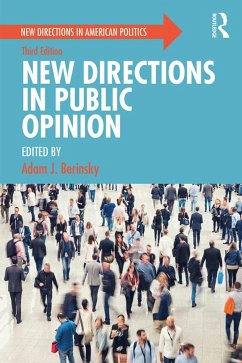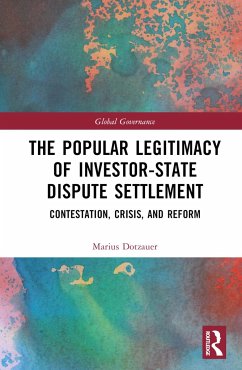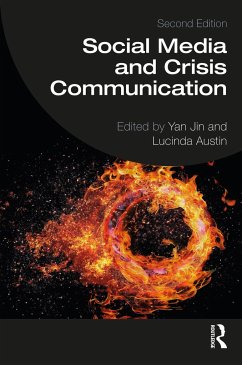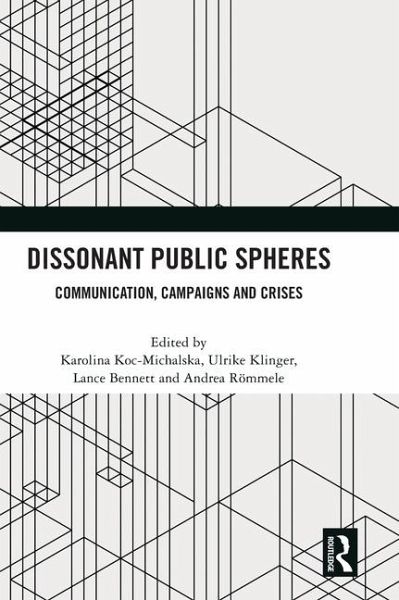
Dissonant Public Spheres
Communication, Campaigns and Crises
Herausgegeben: Koc-Michalska, Karolina; Klinger, Ulrike; Bennett, Lance; Rommele, Andrea
Versandkostenfrei!
Versandfertig in 6-10 Tagen
154,99 €
inkl. MwSt.
Weitere Ausgaben:

PAYBACK Punkte
77 °P sammeln!
This book covers various aspects of political communication in dissonant public spheres and their impact on democratic processes. It expands research on campaigning beyond assumptions of well-functioning political systems, to better understand how the erosion of institutional legitimacy and trust affects communication processes.The volume approaches the concept of dissonant public spheres from four divergent perspectives: as instrumental threats to democracy, as communication performed by political actors, forms of engagement by citizens, and the nature of political conflicts. New perspectives...
This book covers various aspects of political communication in dissonant public spheres and their impact on democratic processes. It expands research on campaigning beyond assumptions of well-functioning political systems, to better understand how the erosion of institutional legitimacy and trust affects communication processes.
The volume approaches the concept of dissonant public spheres from four divergent perspectives: as instrumental threats to democracy, as communication performed by political actors, forms of engagement by citizens, and the nature of political conflicts. New perspectives are developed on how political candidates, organizations, and parties optimize their behaviour within dissonant political environments. These disrupted online communication environments reshape public spheres and change citizen engagement in ways that amplify political conflicts and crises. Chapters also examine the role of data-driven campaigning and address how limited accessto platform data affects our understanding of dissonant public spheres.
A significant new contribution to the field of political communication, this volume will be a key resource for scholars and researchers of communication studies, politics, media studies and sociology. The chapters in this book were originally published in Political Communication.
The volume approaches the concept of dissonant public spheres from four divergent perspectives: as instrumental threats to democracy, as communication performed by political actors, forms of engagement by citizens, and the nature of political conflicts. New perspectives are developed on how political candidates, organizations, and parties optimize their behaviour within dissonant political environments. These disrupted online communication environments reshape public spheres and change citizen engagement in ways that amplify political conflicts and crises. Chapters also examine the role of data-driven campaigning and address how limited accessto platform data affects our understanding of dissonant public spheres.
A significant new contribution to the field of political communication, this volume will be a key resource for scholars and researchers of communication studies, politics, media studies and sociology. The chapters in this book were originally published in Political Communication.






